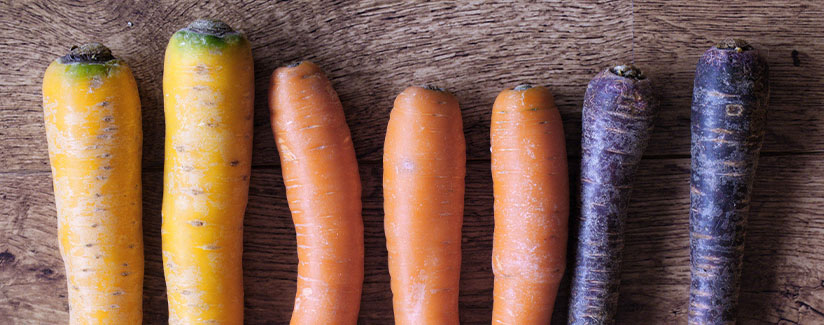
Bleach on carrots? Consumer question answered.
We received the following inquiry from DeLyla regarding the white film on carrots:
“What is the scoop regarding baby carrots made from deformed carrots and then added bleach to them? Then, after a few days in your refrigerator the carrots get a white film on them? Is this chlorine and is it safe or does this cause health issues and or cancer?”
We asked Dr. Sheryl Barringer, Professor and Graduate Studies Chair in the Department of Food Science and Technology at The Ohio State University to respond.
Dr. Barringer:
The white film is the surface drying out. The carrots are peeled, which roughens up the surface and makes it dry out faster than unpeeled carrots. It is not chlorine.
We had a few questions in our comment section, asking if carrots are rinsed in bleach or chlorine.
Dr. Barringer:
Organic carrots are not washed with chlorine solution. Chlorine alternatives, including ozone solutions, are used on these. Non-organic vegetables, including carrots, are washed with a sanitizer, most likely chlorine and occasionally with chlorine alternatives (like peracatic acid, Prosan, or different combinations of organic acids and detergents). It is somewhat difficult to generalize because different manufactures use different approaches. However, it is reasonable to assume that if the vegetable is not organic, it most-likely has been sanitized with chlorine.
Additionally, Dr. Joe Schwarcz is director of McGill University’s Office for Science and Society, and addressed this question in an article in The Gazette. He said, “While it is true that sometimes the carrots are rinsed in a dilute solution of chlorine or chlorine dioxide in order to do away with bacteria, the process has nothing to do with the white discoloration, known in the trade as carrot blush.” He added, on an About.com article, “The whole point of washing vegetables with chlorinated water is to protect consumers’ health by reducing bacteria that could cause foodborne illnesses.”
If you have questions about food, please let us know by submitting your question here. We’re happy to help!
Photo Credit: “01327.jpg” by MaxStraeten

























